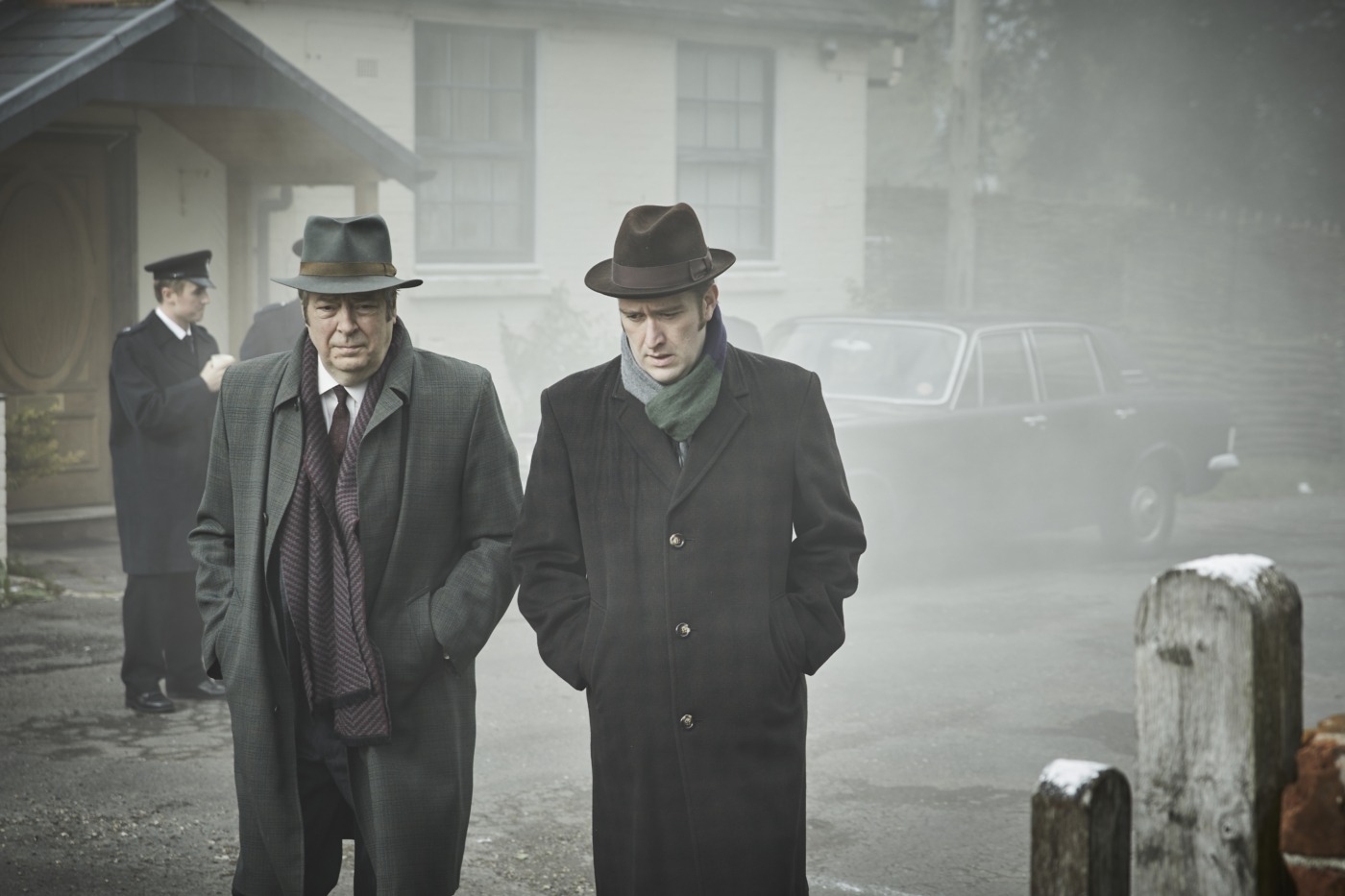‘Endeavour’: Terminus
No sooner is the new series of Endeavour here, it’s gone – and it goes out with a remarkably different instalment. Channelling horror cinema in this latest outing, ‘Terminus’ is a gripping piece of drama whose phenomenal cast and solid direction more than bypass a number of issues in the screenplay to deliver something special.
It’s winter 1971, and a university don is murdered shortly after he disembarks the number 33 bus. The brutal death, a stabbing with crosses carved into the victim’s eyes, puts Thursday in mind of an Oxford tragedy from a few years prior. However, his investigation is a man down as Morse continues to struggle with his personal demons, and a surprising revelation forces Thursday to question his sergeant’s suitability for the case. Already on edge due to news from Northern Ireland, Thursday sends Morse home. But the sergeant fails to make it, instead taking a bus journey in the snow that sees him wind up at an abandoned hotel with links to the case.
Matthew Slater’s score and Kate Saxon’s direction are fantastic throughout – they never let go, keeping up the tension as the episode evolves into a kind of horror film, complete with a terrifying masked killer in a jester costume.
Last week, I wrote about how the combination of score and direction really conveyed a sunny mood to proceedings – it’s a similarly compelling opening in ‘Terminus’, but a much darker one. As winter falls, shots of the night-time bus journey are intercut with black-and-white footage from a 1963 murder spree, and the mood is oppressive. Matthew Slater’s score and Kate Saxon’s direction are fantastic throughout – they never let go, keeping up the tension as the episode evolves into a kind of horror film, complete with a terrifying masked killer in a jester costume. This murder mystery swiftly becomes a combination of And Then There Were None and Halloween (the references to Loomis and Haddonfield force me to make that comparison, and not unjustly so).
The confined setting of half of this episode gives space for the guest actors to shine. Anna Burnett is charming as a mysterious young woman with links to the hotel, Adam Ewan is strong as a flirtatious bus conductor, and Martin Hutson is the right level of skin-crawling as a stand-offish lawyer. Morse also finds a companion in Gillian Nicholls, a doctor played by Jennifer Kirby, who becomes his ally as things start to worsen. It’s an interesting supporting cast that gives Shaun Evans a lot to do as Morse – he treats them as suspects, but they’re also suspicious of him and aware of his drunkenness.
I’m not going to claim this is the perfect episode – sadly, as ‘Terminus’ hits the atmospheric and character beats, it lets the story slack considerably.
‘Terminus’ is also concerned with some of the lingering plot threads that featured in ‘Striker’ and ‘Scherzo’, with varying degrees of success. Most prominently, Thursday forces Morse to confront his alcoholism: he’s already struggling with the knowledge that his son Sam has gone missing in Northern Ireland, and he’s not about to let Morse go down too. Cue some wonderful acting (as ever) from Roger Allam, who goes through this episode with the weight of the world on his shoulders. Thursday and Bright share a touching moment, Anton Lesser demonstrating that tone-perfect sense of quiet dignity, as more hints of Morse’s future fall into place. As for the Joan-Strange storyline, it doesn’t really happen – they’ve got maybe a minute together onscreen, and it barely hints at something.
I’m not going to claim this is the perfect episode – sadly, as ‘Terminus’ hits the atmospheric and character beats, it lets the story slack considerably. The conclusion is rushed and not very solid, and I don’t see how Morse could possibly have worked out who the villain is as he’s not privy to most of the information that Thursday and the viewers receive. Too much of the plot relies on a massive coincidence of the weather that could not have been in the killer’s plan at all, and I’m not sure I bought one of the proposed motives for the crimes. Endeavour is normally much tighter than this. But because the episode is clearly channelling horror cinema, I’m inclined to forgive these issues when watching – but I certainly can’t ignore them.
If we do end it here, the series wraps up on the most poignant of closing lines, but I hope that there is more to come.
The question now is what next for Endeavour? This is episode 33, equalling the original Morse and its sequel Lewis, and it was assumed it would follow the unwritten rule and call it a day. But I don’t know how satisfying that would be now – it feels like there are still a lot of unanswered questions. From Sam’s whereabouts to Joan and Strange’s potential relationship to a possible fracture between Morse and Thursday, none of this really factored into ‘Terminus’ at all. If we do end it here, the series wraps up on the most poignant of closing lines, but I hope that there is more to come. There’s a definite sense that there’s more of this story to tell.
‘Terminus’ is an atmospheric story to end the eighth series (and, potentially, the entire story). The acting, production values, and direction are on-point, and some limitations in the script don’t detract from a very claustrophobic outing. If this is the end, to quote Thursday, mind how you go.

Comments